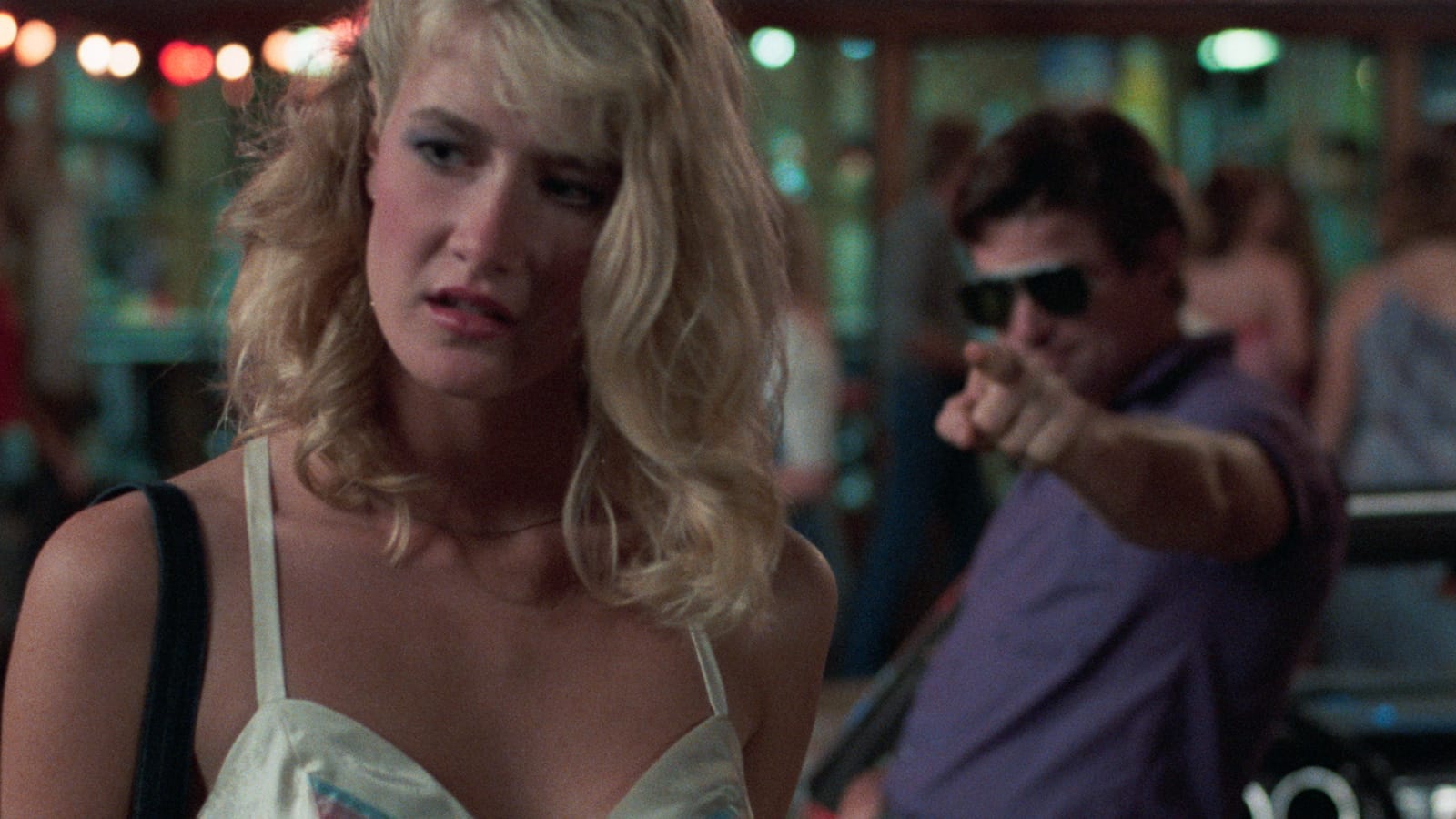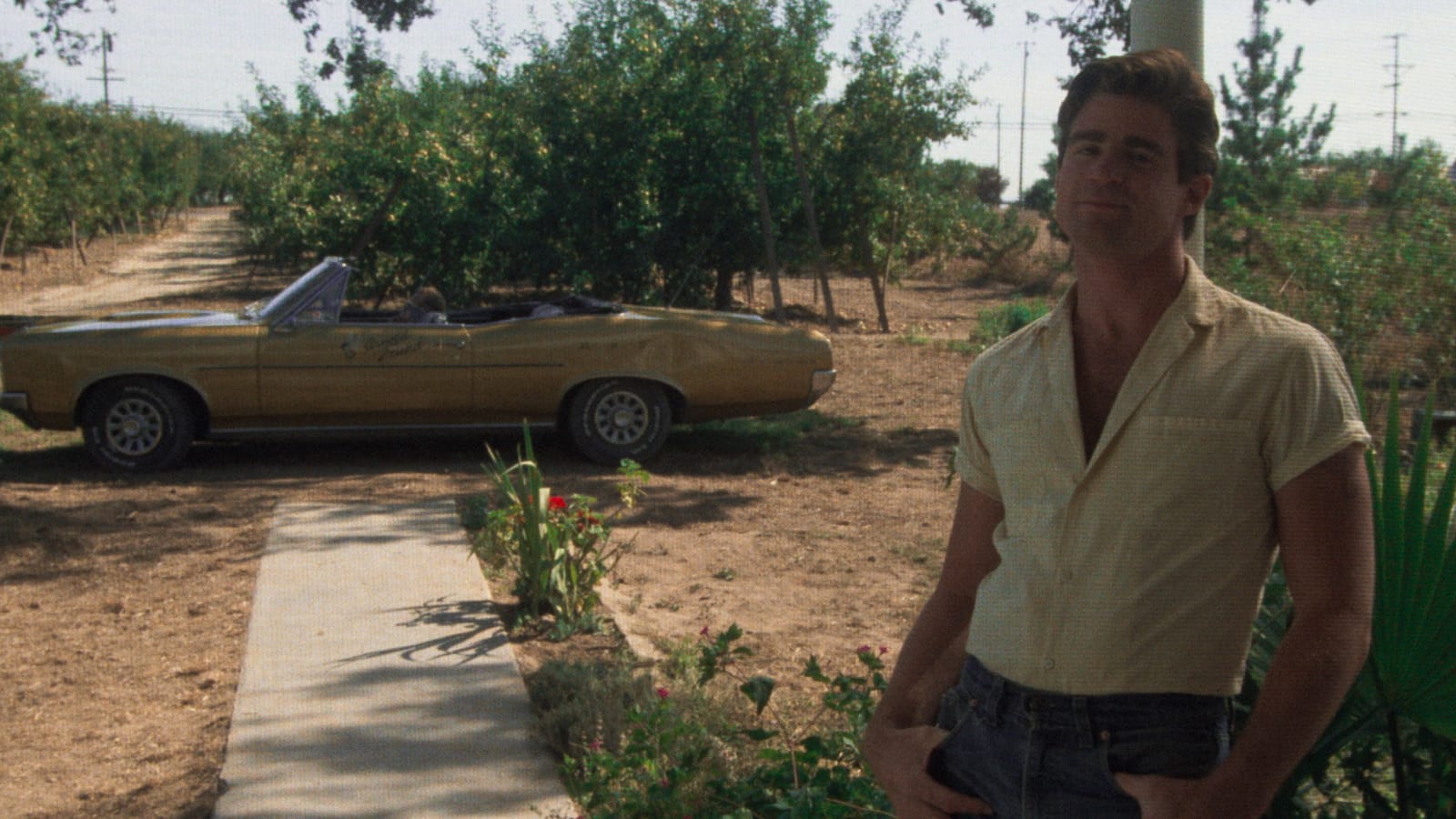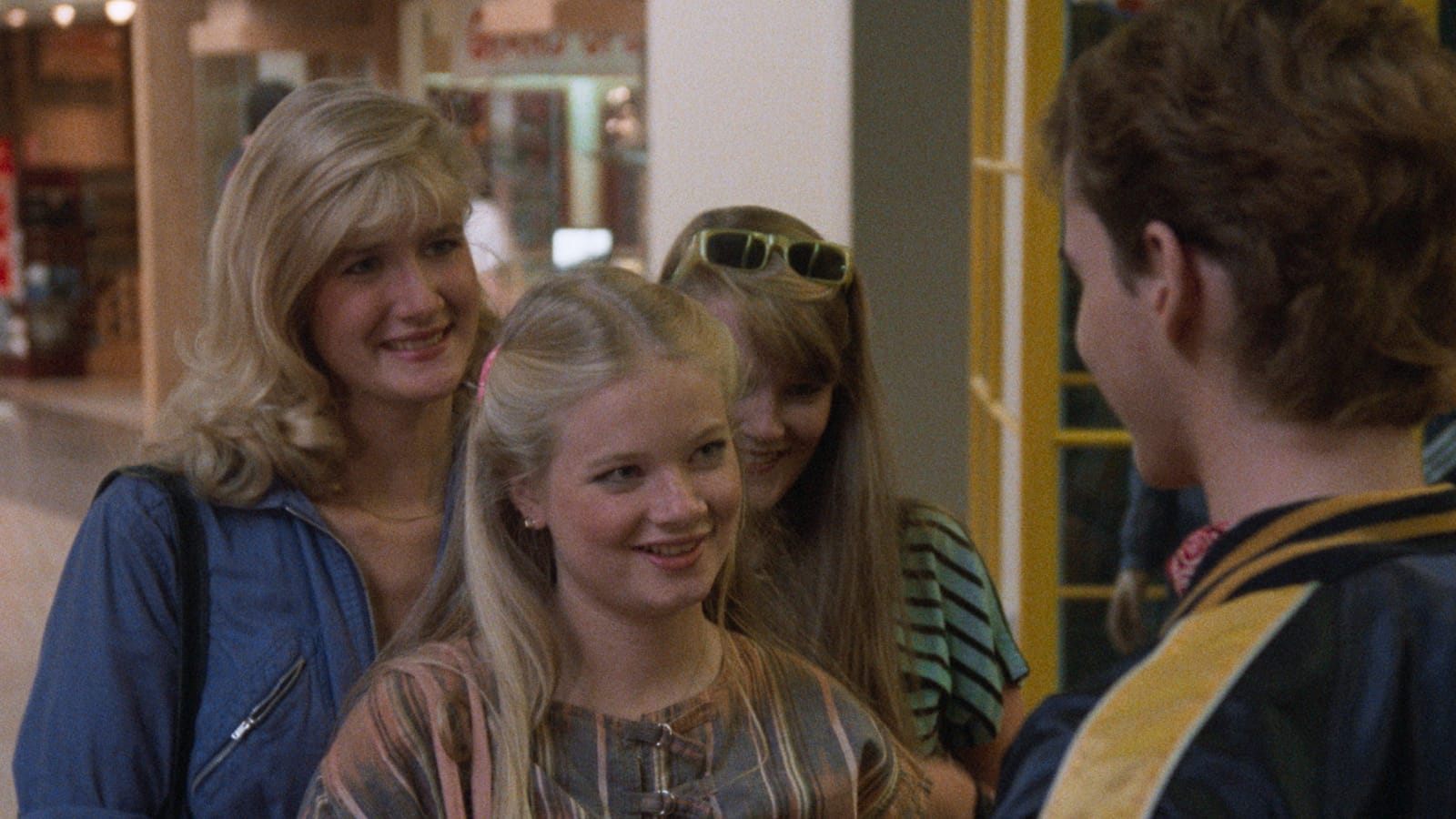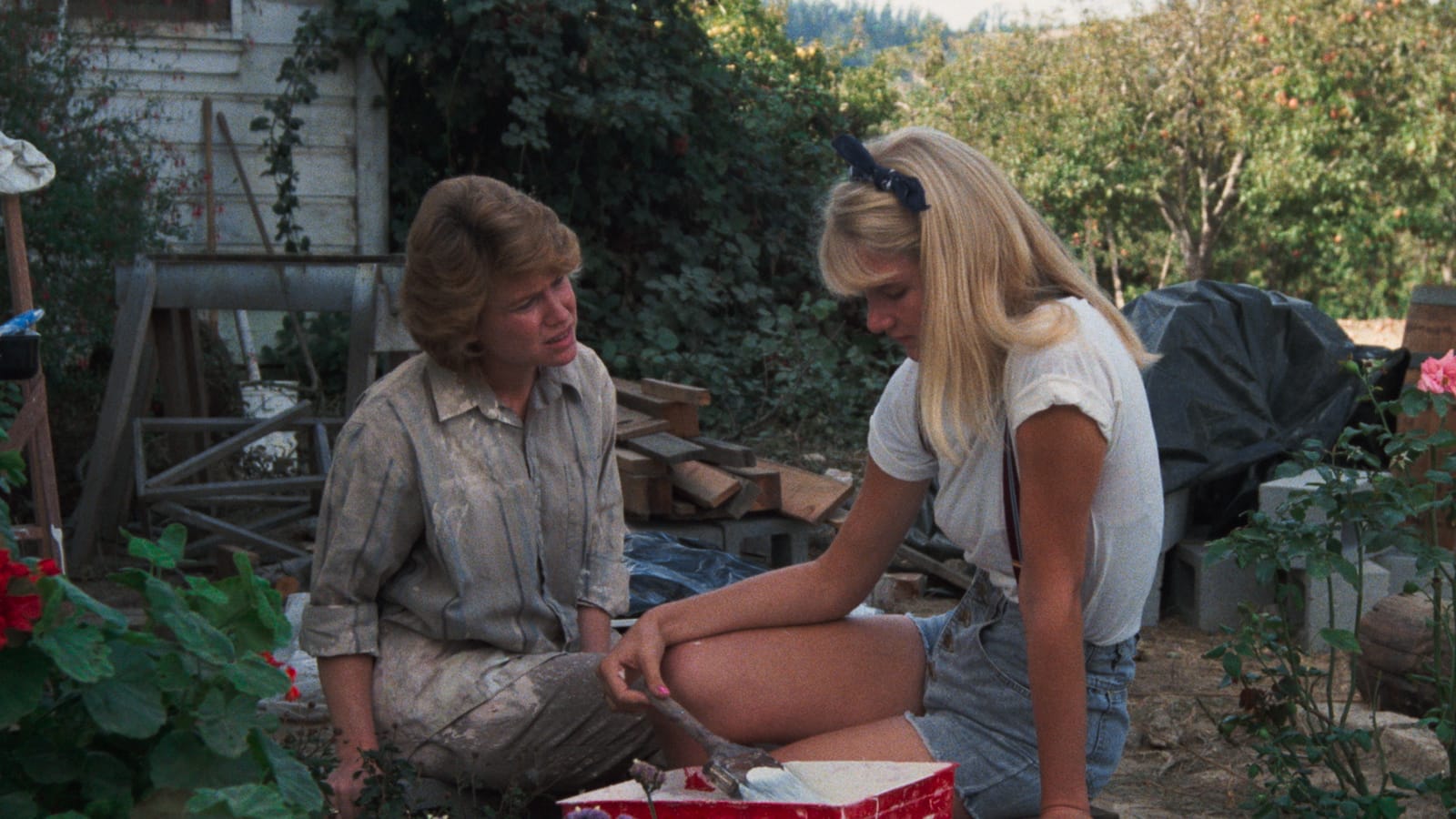Blu-ray Review: SMOOTH TALK, Adulthood Can Come Too Fast

Joyce Chopra's Smooth Talk has always stood out among teenage-girl-coming-of-age films for several reasons. It was the filmmaker's fiction narrative debut after a successful career in documentary film; it was Laura Dern's first major leading role; and - though perhaps this is hindsight talking - it's one of the few films from this era in which a woman's perspective on those important formative years, and how girls learn about the predatory nature of men, takes centre stage. Based on the short story "Where Are You Going, Where Have You Been?" by Joyce Carol Oates, tt's deceptively complex in presentation and layers of narrative, and long overdue for the Criterion treatment.
Winner of the Grand Jury prize at Sundance, it tells the story of a fateful summer for 15-year-old Connie (Dern). Like many teenagers, she's tiring of what she sees as a dull existence in a nothing suburb, with little to do and almost nowhere to go, and a fraught relationship with her mother Katherine (Mary Kay Place). She and her friends Jill and Laura hang out at the mall and the beach, until Connie and Laura take it a step further, hanging out at a local food place, where Connie starts to hang out with boys just a little bit older, discovering innocent pleasure of affection. But it's not long before a far older man, Arnold (Treat Williams), takes notice of her, and the results will take Connie much further than she's ready to go.
This is almost two movies in one. The first two thirds are understated and eerily familiar, yet stand out for the sensitive approach and keen insight to the material, and standout performances. Like many teenage girls, Connie is at once confident and shy, testing boundaries in her personal life and with her family. She and her friends sneak away to the beach, spend hours at the mall, and try to find some semblence of independence, in a town without public transport and too many miles to everything. The music (supervised by James Taylor) gives a folk sensibility to Connie's outlook; she wants that joy she thinks the kids older than her feel, that secret passion, but she's still not quite sure how to have it on her own terms.
Connie lives in the shadow of her older sister: June is more steady and accomplished (in a small town way), but Connie knows she's got her own intelligence, and her looks, and she still has that wonderful strut of young women that the world hasn't beaten down yet. Katherine is the older version of what Connie is trying not to become. Whatever dreams she had of being something more, being somewhere else, are gone, and all she has is the endless renovation of the house. It's because she sees so much of herself in Connie that she berates her; she doesn't want Connie to make her mistakes, and she's jealous of Connie's freedom and youth. Connie doesn't know what she wants yet, she's still finding out, and finding out who she is outside of just a daughter, or sister, or friend, and even trying to find out how to find out.
The final third, the film takes a turn that is both - again - eerily familiar, and yet quietly terrifying. Arnold has decided that Connie is going to be his - at least for an afternoon, and the way he wants - and he shows up when Connie is alone at home (enjoying this blissful yet somewhat boring existence). Arnold shows up in his convertible, and it begins twenty of the most tense minutes you'll find in film. Arnold isn't just any kind of predator; he is the stranger who knows exactly what to say to make you think he's your friend; he knows exactly how to keep his threats just under the surface, so you know the danger your in; he knows, he knows, that Connie will get in his car, he just has to be patient, and make her think it's of her own free will. This is certainly one of Williams' best performances, as well as Dern's, as they dance this terrifying tango that will lead to an unseen event that leaves Arnold satisfied, and Connie shaken and changed, in ways it seems she didn't want.
SPECIAL FEATURES
It's no secret that the reason why so many of us cinephiles get a little excited, to say the least, when a film gets the Criterion treatment, is the extras. And while they're usually good, they've outdone themselves with the breadth of extras for Smooth Talk. It begins with the 4K digital transfer, which makes it look like new, while still retaining that film print quality of richness and warmth. There are subtitles for the deaf and hard of hearing, and original trailers.
There are five interviews included, not only from the present, but from the past. A radio interview with Chopra, from the time of the film's release, gives great insight as to how she looked on the film (and promoted it) at the time. An interview with Chopra, Oates, and Dern out of the restoration's premiere at the New York Film Festival last year is a treat, seeing how these three women remember how they felt working together at that time, and how they see the film now. Further interviews with Williams and Place give insight into their characters; how Williams sees it now, especially considering how the women's movement has changed in 30 years, he sees more how much of a villain his character was, in a way he didn't recognize at the time. As well, a look at the production design with David Wasco (Inglourious Basterds, La La Land) lets us peek behind the curtains on how the film achieved its remarkable authentic look.
The booklet has a wonderful essay by Honor Moore about how Chopra and screenwriter Tom Cole made the film and Chopra's journey as a woman filmmaker, as well as a 1986 article by Oates abotu the adaptation. It also includes the short story, and this is part 2 of a masterclass for adaptation. If you do what I did - watch the film first, then read the story - you can see Cole's approach for fleshing out the material, as the story is mainly the final scene of the film, the encounter with Arnold and Connie. It's a great story on its own, and a way to understand how literature can be adapted to film.
Three of Chopra's short films are included (Joyce at 34, Girls at 12, and Clorae and Albie), all documentaries about the lives of girls and woman in the 1970s, and it's a fascinating look not only at the scope of Chopra's work, but a look at how far the feminist movement has come (and yet, how much we still need to do, and I'd love to know what happened to Chlorae and Albie). But the creepiest inclusion is arguably, a reading of the Life Magazine article that inspired the short story, 'The Pied Piper of Tucson' - again, a masterclass in adapting from one literary form to another, and to listen to it and connect it to the film, might keep you up at night a bit.
Smooth Talk is not only one of the best coming-of-age films of the late 20th century, it still resonates and is relevant today, with some of its stars' best performances.















